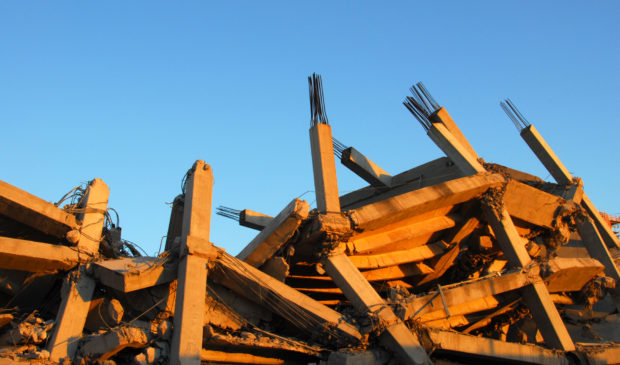Demolition permitting process redesign delayed again
Wednesday, September 23, 2020 by
Ryan Thornton City Council was scheduled to vote on two separate items Thursday as part of a multi-year effort to update the city’s demolition permitting process, but a number of potential flaws surfaced during Council’s discussions over the resolution and ordinance last week.
Among the concerns, Council Member Jimmy Flannigan said the resolution, which directs the city manager to develop a contractor registration program for demolition and construction work, fails to explain how the program would work, does not articulate the benefit to demolition contractors and exempts many homeowners from lead and asbestos safety standards when working on their own homes.
“The problem with the resolution is, it doesn’t really talk about this contractor registration program or what it would be about,“ Flannigan said at last Tuesday’s work session. “I mean, I’m really kind of stunned to see how little is included in this resolution.”
After arguing Tuesday in favor of “moving forward as quickly as possible” with the items, Council Member Kathie Tovo requested postponing both the resolution and the ordinance to Oct. 1. Tovo said the first part of the ordinance, creating standards for providing neighbors written notice of upcoming residential demolition projects, is “going to require considerable discussion,” despite these solutions having been in progress since an August 2017 audit of the city’s demolition permits. At the request of Assistant City Manager Rodney Gonzales, Council approved the second part of the ordinance related to disconnection of utility services before demolition.
“Long before it was an audit and finance issue, it was something that community members mentioned a lot, that their neighbor had just torn down a house that was very likely to have asbestos, that the air was full of a fog of various kinds of building products, and you know, why didn’t they know about it with enough advance notice to actually be off-site if they had the ability to do so,” Tovo explained.
As written, the resolution would exempt one- and two-family homeowners with a homestead exemption from the registration program as long as they are doing the demolition or renovation work themselves, a caveat that Flannigan said “seems like a health and safety issue.”
Following release of the demolition permits audit, Council approved a resolution in December 2017 noting the existence of 64,500 single-family homes in the city built before the 1978 ban on residential use of lead-based paint. “Why are we exempting (single-family structures) if that was specifically called out in the original resolution?” Flannigan asked.
A demolition contractor registration program is one of the tools recommended by the Development Services Department in response to the 2017 audit. The program is intended to compensate for the fact that, unlike electricians, plumbers or air conditioning contractors, general building contractors and demolition contractors are not regulated by the state or held accountable by city requirements for bonding and insurance. To make the program successful and streamline the permitting process, however, Flannigan said the program needs to offer something of value to the registered contractors.
“For example, if you’re a registered contractor, that means that you’re acknowledging the very complicated set of regulations that we have, and as a result, a registered contractor can have their work sites continue operating (despite) minor infractions,” Flannigan said. “It can be exempt from full red tag. There’s got to be some benefit to being registered, because I’m not hearing what the benefit to registration is.”
Beth Culver, the city building official and assistant director for Development Services, said the city will be opening up a new stakeholder engagement effort with demolition and construction contractors if Council passes the resolution for the registration program in October. At that point, Culver said, “What we can do is investigate further what is the benefit to (contractors) to make sure that we’re not just providing an onerous requirement for them to obtain a permit.”
Photo made available through a Creative Commons license.
The Austin Monitor’s work is made possible by donations from the community. Though our reporting covers donors from time to time, we are careful to keep business and editorial efforts separate while maintaining transparency. A complete list of donors is available here, and our code of ethics is explained here.
You're a community leader
And we’re honored you look to us for serious, in-depth news. You know a strong community needs local and dedicated watchdog reporting. We’re here for you and that won’t change. Now will you take the powerful next step and support our nonprofit news organization?









